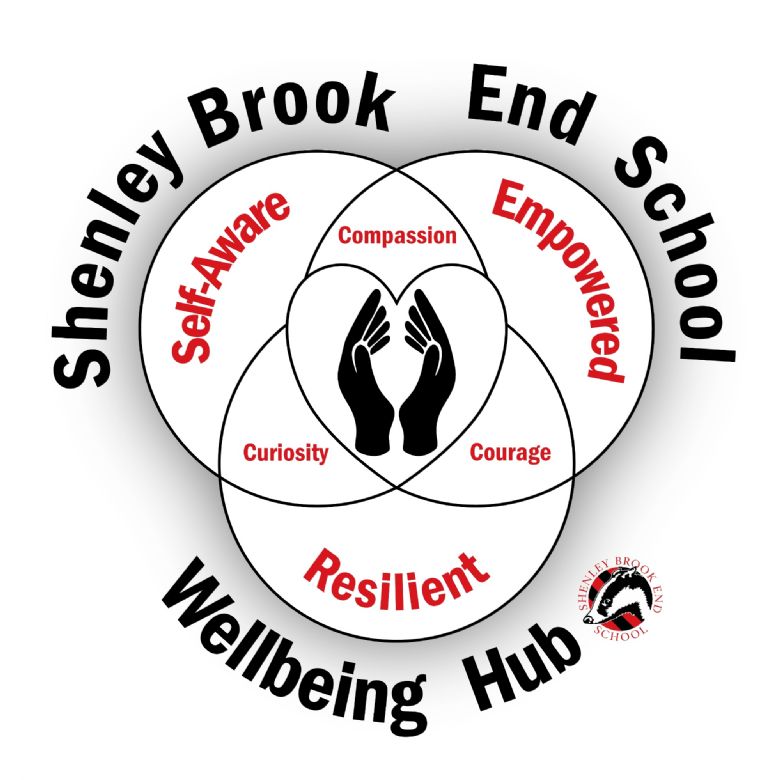mental health & Wellbeing
‘Mental health is a state of wellbeing in which every individual realises his or her own potential, can cope with the normal stresses of life, can work productively and fruitfully, and is able to make a contribution to her or his community’ (World Health Organisation).
At our school, we aim to promote positive mental health and well-being for our whole school community; pupils, staff, parents/carers and recognise how important mental health and emotional well-being is to our lives in just the same way as physical health. We recognise that children and young people’s mental health is a crucial factor in their overall wellbeing and can affect their learning and achievement. Persistent mental health problems may lead to students having significantly greater difficulty in learning than the majority of those of the same age.
The Special Educational Needs and Disabilities (SEND) Code of Practice identifies Social, Emotional and Mental Health as one of the four areas of Special Educational Need.
All children go through ups and downs through their school career and some face significant life events. About 10% of children aged 5 to 16 have a diagnosable mental health need and these can have an enormous impact on their quality of life, relationships and academic achievement.
The Department for Education (DfE) recognises that: “in order to help their pupils succeed; schools have a role to play in supporting them to be resilient and mentally healthy”.
Schools can be a place for children and young people to experience a nurturing and supportive environment that has the potential to develop self-esteem and give positive experiences for overcoming adversity and building resilience. For some, school will be a place of respite from difficult home lives and offer positive role models and relationships, which are critical in promoting student wellbeing and can help engender a sense of belonging and community.
Our role in school is to ensure that they are able to manage times of change and stress, be resilient, are supported to reach their potential and access help when they need it. We also have a role to ensure that pupils learn about what they can do to maintain positive mental health, what affects their mental health, how they can help reduce the stigma surrounding mental health issues and where they can go if they need help and support.
Our aim is to help develop the protective factors which build resilience to mental health problems and be a school where:
- all students are valued.
- students have a sense of belonging and feel safe.
- students feel able to talk openly with trusted adults about their problems without feeling any stigma.
- positive mental health is promoted and valued.
- bullying is not tolerated.
At our school, we aim to promote positive mental health for every member of our staff and student body. As a school community we have three areas of focus in order to support this.
- A proactive approach to wellbeing and mental health that prepares students and staff with strategies and support to sustain their wellbeing and resilience.
- A culture that understands there are times when students and staff will require support with their mental health and resilience.
- A responsive approach where students and staff are given support or directed to specific professionals or agencies.
We pursue this aim using both universal whole school and targeted approaches aimed at vulnerable students, in addition we will refer those students who require more specialist support and input to CAMHS and/or other external mental health support services.
We aim to develop a culture in which talking about emotions and feelings, mental health and wellbeing is the norm, where it is acceptable to acknowledge difficulties and ask for help, where extra input for those requiring more support can be provided in a coherent and non-stigmatising way, and where all staff have the skills and attitudes to recognise, support and signpost those with greater needs.

We are very fortunate to have the Wellbeing hub at our school, offering one to one counselling and wellbeing support for our students.
Referrals to our Wellbeing mentors are made by Form tutors, Year Leaders, Progress Leaders and subject teachers.
Parents/carers can contact the hub by emailing: wellbeing@sbe5d.com
Please explore the SBE Wellbeing page by clicking here for information on how to access a range of support.
